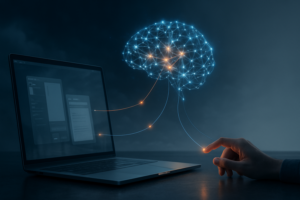Andrej Karpathy: AI, AGI, Reinforcement Learning, and the Future of Education
Andrej Karpathy: AI, AGI, Reinforcement Learning, and the Future of Education
I watched Andrej Karpathy unpack AI in a way that feels honest and useful, not flashy. If you want the short version, here it is: he thinks *Artificial General Intelligence* (AGI) is probably a decade away, reinforcement learning is „terrible but everything else is much worse,“ and self-driving cars are moving slower than we hoped. You can watch the interview on YouTube, it’s worth the time.
Let’s break that down. First, AGI. Karpathy argues it won’t arrive like a switch turning on, but instead it will blend into long-term economic and social trends, roughly continuing the steady growth we’ve seen over the past centuries, not causing immediate upheaval. That perspective felt grounding to me, because it acknowledges scale and time, and that change usually arrives in layers.
On reinforcement learning, his critique is frank. He calls it flawed, yet often still the best option for certain problems. I remember experimenting with simple RL projects, and yeah, it’s fiddly, data-hungry, and temperamental. Real-world tasks like autonomous driving expose how messy it gets, which is why cars still aren’t fully self-driving everywhere.
Karpathy also pulls back the curtain on Large Language Models, pointing out real cognitive gaps, not just shiny benchmarks. That’s crucial if we’re going to teach, learn, or build systems around them. He finishes by looking at education, suggesting we rethink how we train people to work with these tools, focusing on judgment and context, not rote skill.
Bottom line: progress will be incremental, not apocalyptic, and our job is to learn, adapt, and design systems that amplify human judgment. I came away hopeful, curious, and ready to keep learning with you.
Andrej Karpathy: KI, AGI, Reinforcement Learning und die Zukunft der Bildung
Andrej Karpathy gibt eine nüchterne, aber optimistische Sicht auf KI. Seine Kernaussage: *AGI* liegt wahrscheinlich noch etwa ein Jahrzehnt entfernt, Reinforcement Learning ist problematisch, trotzdem oft besser als die Alternativen, und selbstfahrende Autos entwickeln sich deutlich langsamer als viele prognostiziert haben. Hier ist das Interview, falls du es dir anschauen willst: YouTube-Interview.
Kurz erklärt, er erwartet kein plötzliches Umwälzen der Gesellschaft. Stattdessen wird KI sich schrittweise in unsere Wirtschaft und Kultur einfügen, in einem Tempo, das sich über Jahre und Jahrzehnte entfaltet. Das klingt beruhigend, weil es fordert, dass wir über langfristige Anpassung nachdenken, nicht nur über rasche Reaktionen.
Bei Reinforcement Learning ist seine Haltung ehrlich: es funktioniert, ist aber oft ineffizient und launisch. Ich erinnere mich an eigene Experimente, bei denen kleine Änderungen große, unerwartete Effekte hatten, das ist frustrierend und lehrreich zugleich. Selbstfahrende Autos zeigen genau diese Komplexität in der Praxis.
Schließlich betont Karpathy die Grenzen großer Sprachmodelle, ihre kognitiven Lücken, und die Notwendigkeit, Bildung neu zu denken. Wir sollten Menschen darin schulen, mit diesen Werkzeugen zu urteilen, nicht nur technische Aufgaben zu reproduzieren.
Fazit: Es wird kein plötzliches Ereignis, sondern ein langsames Einpassen. Das gibt uns Zeit, Systeme und Bildung so zu gestalten, dass KI unsere Urteilsfähigkeit stärkt. Ich finde das ermutigend, und hoffe, du siehst das ähnlich.














Kommentar abschicken